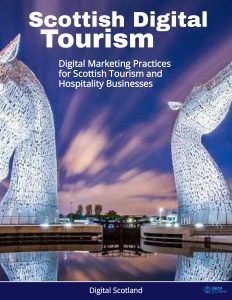ScotPay – A National Crypto Tourism Payment System for Scotland
Scotland can emulate the technology innovations of pioneers like Bhutan to tap into the massive 'crypto tourism' market.
 The idea of this project is to adapt Bhutan’s pioneering national crypto tourism payment system—a QR code-based solution enabling seamless cryptocurrency payments for tourism services via the Binance app—for implementation in Scotland.
The idea of this project is to adapt Bhutan’s pioneering national crypto tourism payment system—a QR code-based solution enabling seamless cryptocurrency payments for tourism services via the Binance app—for implementation in Scotland.
The adapted system will allow tourists and local businesses (e.g., hotels, restaurants, and attractions) to accept over 100 cryptocurrencies (such as BTC, BNB, and USDC) with instant conversion to GBP, targeting Scotland’s thriving tourism sector, which attracts over 14 million visitors annually and generates £5.5 billion in revenue.
‘Crypto tourism‘ is a form of tourism that caters to cryptocurrency enthusiasts by offering packaged travel tours that can be paid for with digital currency.
Pioneers like the Robin Hill Hotel has launched cryptocurrency payment options, aiming to modernize guest experiences by offering secure, convenient digital payments for international travellers. It’s part of MDJM’s expanding network, which includes Fernie Castle in Scotland and Robin Hill in England—properties being redeveloped as tech-infused cultural destinations.
For guests this means faster transactions, reduced currency conversion fees, enhanced security, and hassle-free payments—ideal for global visitors and crypto enthusiasts on business or leisure trips. For the hotel it means attracting tech-savvy demographics, differentiation from competitors as an early adopter in Scotland, simplification of handling foreign currencies, and boosts competitiveness in the evolving travel sector.
Crypto Payments
Launched in partnership with Binance Pay and DK Bank, Bhutan’s system uses smartphone-generated QR codes for crypto payments, processed via the Binance app with zero gas fees and instant local currency conversion. It supports tourism services like flights, hotels, and food, benefiting remote vendors without needing advanced infrastructure.
Scotland’s tourism economy mirrors Bhutan’s in emphasizing natural and cultural attractions but faces challenges like poor connectivity in rural areas and high cross-border fees for international visitors. Crypto integration can streamline payments, attract tech-savvy tourists (e.g., from Europe and Asia), and align with Scotland’s progressive digital economy goals under the Scottish Government’s “Digital Scotland” strategy.
Objectives
Enhance payment accessibility in remote Scottish areas (e.g., Highlands and islands), reduce reliance on traditional card networks, promote financial inclusion for small vendors, and position Scotland as a global leader in crypto-integrated tourism.
Expected Outcomes
Increased tourist spending via fee-free crypto transactions, broader economic participation for local businesses, and a scalable model for UK-wide adoption.



